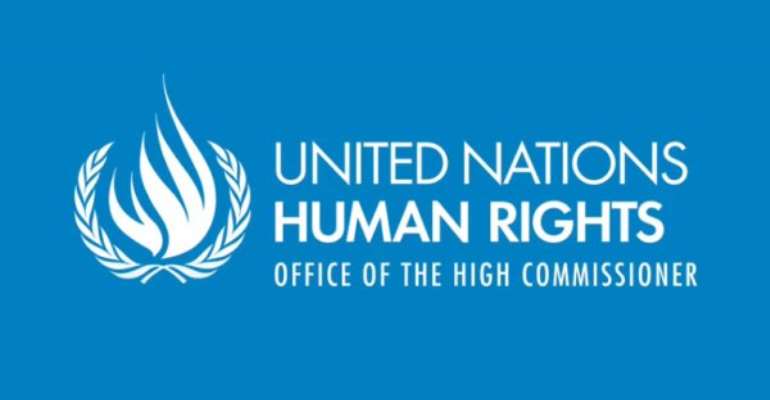UN Committee marks one month since abduction of schoolgirls in Chibok, Nigeria, urging their release, warning of consequences

GENEVA, Switzerland, May 14, 2014/African Press Organization (APO)/ -- The Committee on the Elimination of Discrimination against Women on Wednesday firmly condemned the acts of violence against more than 200 girls who were abducted from their secondary school on 14 April 2014 during a violent raid by Boko Haram in the village of Chibok, Borno State, Nigeria. The Committee expressed deep concern about the fate of the girls, who have now been separated from their families for one month.
"The Committee considers that this large-scale abduction from an educational institution for enslavement constitutes a direct violation of articles 5, 6 and 10 of the Convention on the Elimination of All Forms of Discrimination against Women* and may qualify as a crime against humanity," Committee chairperson Nicole Ameline stated.
"The Committee urges Nigeria to employ all necessary means to obtain the release of the girls and to bring to justice the perpetrators of this heinous crime."
The Committee recalled its General Recommendation No. 30 (2013) on women in conflict prevention, conflict and post-conflict situations, asking States parties to uphold women's rights before, during and after conflict and to exercise due diligence in ensuring that non-State actors are held accountable for crimes against women.
"In particular, according to the General Recommendation, States must take measures to prevent the occurrence of attacks and threats against school girls and their teachers; and ensure that perpetrators of such acts of violence are promptly investigated, prosecuted and punished," Ms Ameline added.
The Committee will closely follow the situation of the abducted girls and the measures taken by the Nigerian authorities to ensure their release, punish the perpetrators and provide effective remedies to the victims, as well as to prevent similar violations in the future and ensure the participation of women in the resolution of the current crisis.
For interview requests or further information on the work of the Committee, please contact Jakob Schneider on +41 22 917 9301 or [email protected].
* Full convention: http://www.ohchr.org/EN/ProfessionalInterest/Pages/CEDAW.aspx
Article 5: States Parties shall take all appropriate measures: (a) To modify the social and cultural patterns of conduct of men and women, with a view to achieving the elimination of prejudices and customary and all other practices which are based on the idea of the inferiority or the superiority of either of the sexes or on stereotyped roles for men and women; (b) To ensure that family education includes a proper understanding of maternity as a social function and the recognition of the common responsibility of men and women in the upbringing and development of their children, it being understood that the interest of the children is the primordial consideration in all cases.
Article 6: States Parties shall take all appropriate measures, including legislation, to suppress all forms of traffic in women and exploitation of prostitution of women.
Article 10: States Parties shall take all appropriate measures to eliminate discrimination against women in order to ensure to them equal rights with men in the field of education and in particular to ensure, on a basis of equality of men and women:
(a) The same conditions for career and vocational guidance, for access to studies and for the achievement of diplomas in educational establishments of all categories in rural as well as in urban areas; this equality shall be ensured in pre-school, general, technical, professional and higher technical education, as well as in all types of vocational training;
(b) Access to the same curricula, the same examinations, teaching staff with qualifications of the same standard and school premises and equipment of the same quality;
(c) The elimination of any stereotyped concept of the roles of men and women at all levels and in all forms of education by encouraging coeducation and other types of education which will help to achieve this aim and, in particular, by the revision of textbooks and school programmes and the adaptation of teaching methods;
(d ) The same opportunities to benefit from scholarships and other study grants;
(e) The same opportunities for access to programmes of continuing education, including adult and functional literacy programmes, particulary those aimed at reducing, at the earliest possible time, any gap in education existing between men and women;
(f) The reduction of female student drop-out rates and the organization of programmes for girls and women who have left school prematurely;
(g) The same Opportunities to participate actively in sports and physical education;
(h) Access to specific educational information to help to ensure the health and well-being of families, including information and advice on family planning.
